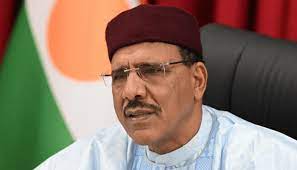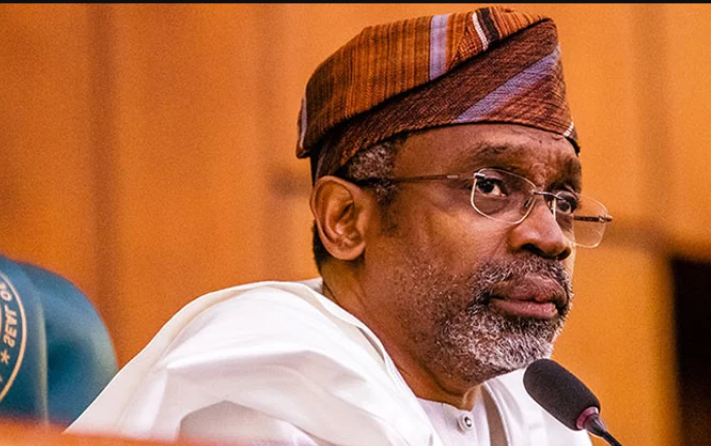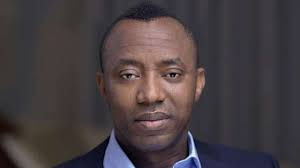A delegation from the ECOWAS bloc in West Africa arrived in Niger and held a meeting with the deposed president, Mohamed Bazoum, on Saturday. Their objective was to pursue a peaceful resolution to the country’s challenges following the takeover by army officers, opting for diplomatic measures instead of a military approach.
Bazoum was reported to be “in good spirits,” according to a source closely connected to the Economic Community of West African States (ECOWAS), as reported by AFP. However, he remains detained, and his electricity supply has yet to be restored.
Since the coup, Bazoum and his family have been confined at the official residence of the president, sparking growing international concern regarding their detention conditions.
The ECOWAS delegation visited Niger to engage in discussions with the military officers responsible for ousting Bazoum on July 26. Led by former Nigerian leader Abdulsalami Abubakar, the delegation from West Africa held meetings with several senior officers involved in the coup. The source did not confirm whether this group included coup leader General Abdourahamane Tiani.
Earlier this month, a prior ECOWAS delegation led by Abubakar attempted to meet with him, or Bazoum, but their efforts were ultimately unsuccessful.
Saturday’s visit occurred subsequent to the declaration by ECOWAS military chiefs that they were prepared to intervene in order to restore the deposed president to power.
ECOWAS has reached a consensus to deploy a “standby force” if necessary, with the aim of reinstating democracy in Niger. However, the organization strongly emphasizes the preference for diplomatic dialogue to resolve the ongoing crisis.
A reliable source within the Saturday delegation has indicated that the delegation’s intention is to convey a resolute stance to the military officers, while also arranging a meeting with Bazoum.
Bola Tinubu, the Chair of ECOWAS and the President of Nigeria, issued a stern warning on Friday, cautioning Niamey about the potential “serious consequences” if the new regime allows Bazoum’s health to deteriorate further. This statement was reported by an EU official.
Niger’s prime minister, Ali Mahaman Lamine Zeine, appointed by the military, assured The New York Times that Bazoum would remain unharmed.
“We are committed to his safety, as violence is not part of Niger’s traditions,” stated the highest-ranking civilian within the new administration.
The new authorities in Niger have exhibited limited flexibility thus far, cautioning against any form of “unlawful aggression.”
On Saturday, a multitude of volunteers gathered in central Niamey in response to a call to enlist as civilian auxiliaries, ready to be called upon to assist the armed forces.
During the past week, defense chiefs from ECOWAS convened in Accra, the capital of Ghana, to refine the specifics of a potential military intervention aimed at reinstating Bazoum should the ongoing negotiations with the coup leaders prove unsuccessful.
“We stand prepared for action upon receiving the command,” affirmed Abdel-Fatau Musah, an ECOWAS commissioner overseeing political affairs and security, following the assembly of military leaders on Friday.
“The designated day for action has also been determined.”
ECOWAS leaders assert the necessity for action following Niger’s fourth coup since 2020, a trend that has affected Mali, Guinea, and Burkina Faso.
The Sahel region grapples with escalating jihadist insurgencies tied to Al-Qaeda and the Islamic State group. Frustration over this violence has, in part, triggered these military takeovers.
ECOWAS forces have previously intervened in crises, including civil conflicts in Liberia and Sierra Leone, dating back to 1990. The involvement of troops from Ivory Coast, Benin, and Nigeria is anticipated for a potential Niger mission.
Nonetheless, specific details about any potential operation in Niger remain undisclosed. Analysts emphasize that such an intervention would carry significant political and military risks, particularly for Nigeria, a key regional player.
Nigeria currently struggles to quell violence posed by various armed groups within its borders. Northern Nigerian leaders have voiced concerns about potential spill-over effects from Niger if an intervention occurs.
Coup leaders have boldly issued threats of charging Bazoum with treason. Yet, they have also expressed a willingness to engage in discussions.
The military-led administrations in neighboring Mali and Burkina Faso have likewise indicated that an intervention in Niger could be perceived as a declaration of war against them.
In the immediate aftermath of the coup, France, which maintains 1,500 troops in Niger, was approached to support a potential armed effort to reinstate Bazoum. Insiders close to the matter confirmed a Le Monde report, but noted that the loyalists shifted allegiances to support the coup, rendering the conditions unsuitable for fulfilling the support request.
ECOWAS has already imposed trade and financial sanctions on Niger. Meanwhile, France, Germany, and the United States have suspended their aid programs.
Furthermore, the United States, a significant partner of Niger in counteracting jihadist threats, announced the appointment of a new ambassador in Niamey. Kathleen FitzGibbon, an experienced career diplomat in African affairs, will refrain from formally presenting her letter of assignment to the new authorities, as the U.S. does not acknowledge their legitimacy.




